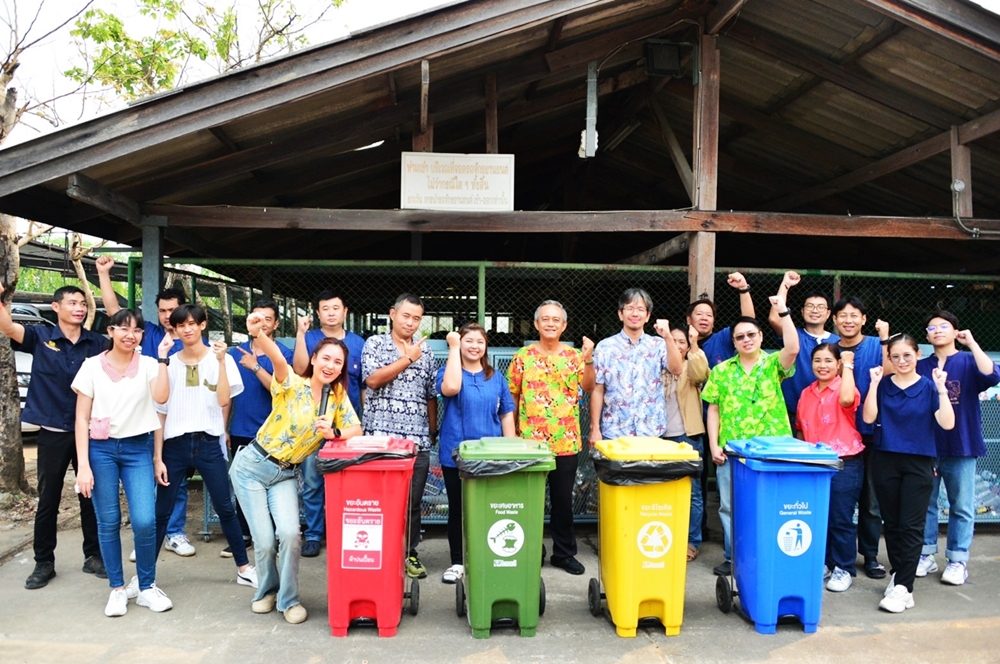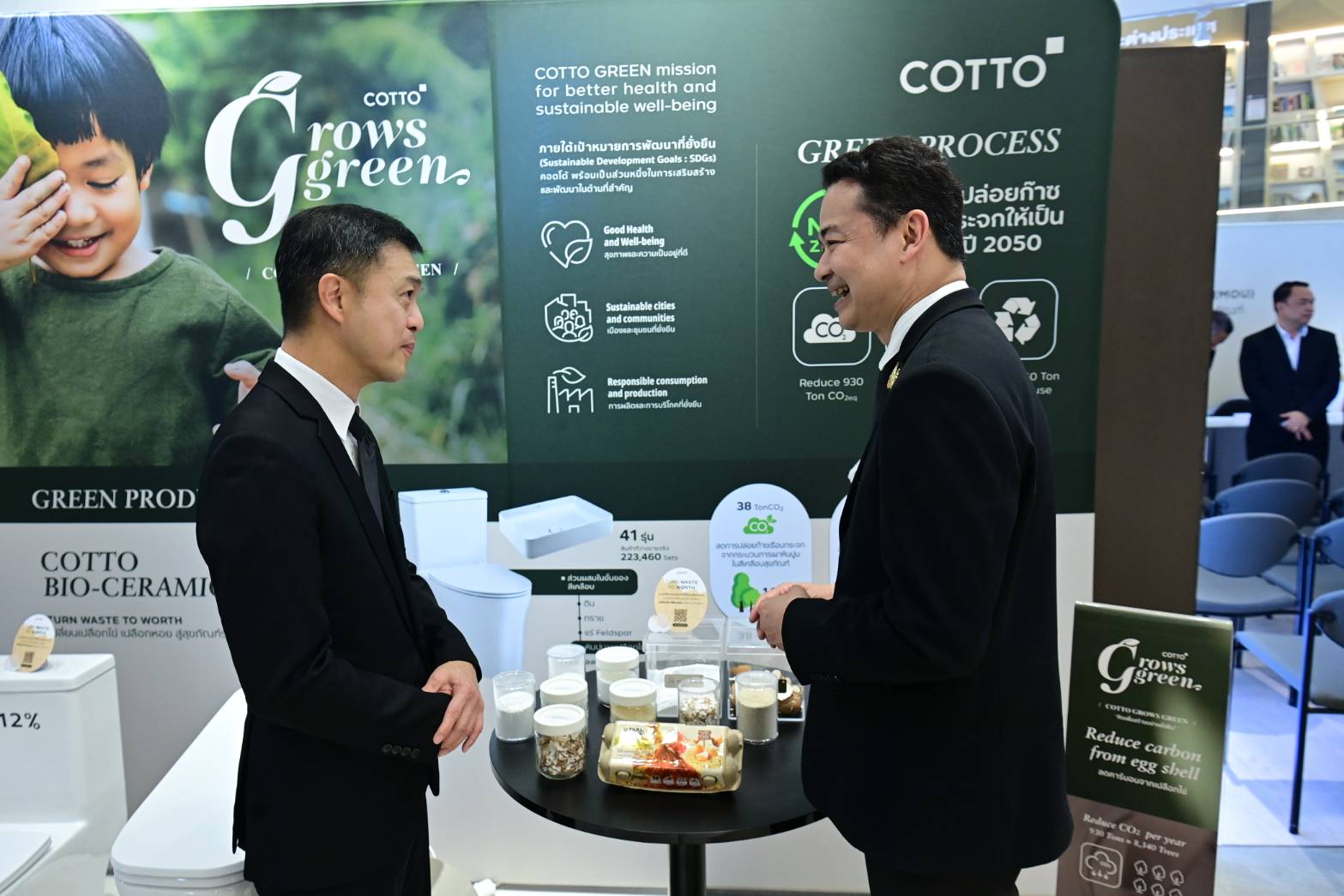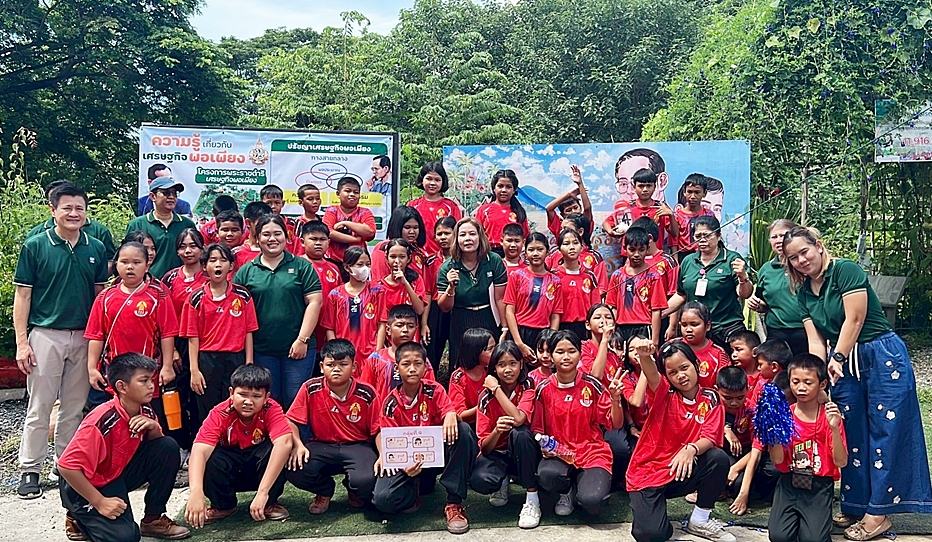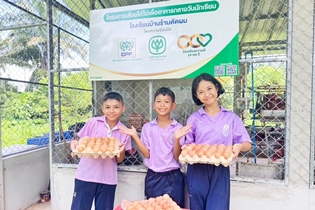

Charoen Pokphand Foods PCL (CP Foods) is proactively promoting the 'WASTE to VALUE' approach to schools and communities near its operations to encourage the adoption of the 3Rs principle (Reduce, Reuse, Recycle) for sustainable waste management. This initiative extends to establishing "Garbage Banks" in schools and communities, with the expectation of moving towards a zero-waste society.
Rewat Hathaisattayapong, Head of Feed Business at CP Foods, explained that CP Foods places great emphasis on maximizing resource utilization and minimizing waste throughout the supply chain, aligning with the Circular Economy principle. CP Foods's 12 livestock feed mills across Thailand have applied the 3Rs principle of "Reduce, Reuse, and Recycle," and have encouraged employees to focus on waste reduction in their practices. Witnessing better performance, the company is extending its network to engage schools and communities by sharing knowledge and guidance on waste sorting and turning waste into value. These schemes aim to generate additional income and optimize household expenses. Currently, 4 communities and 13 schools are participating in the project, leading to the establishment of "Garbage Banks" for public benefit.
"CP Foods aims to build collaboration between the company and surrounding communities to create a zero-waste society," said Rewat. "We demonstrate waste sorting and recycling waste into value through educational activities to enhance public interest and participation in proper waste management. This shows the value of reusing or recycling waste, as well as creating value from waste materials or 'WASTE to VALUE', including proper waste disposal to help minimize waste issues, leading to sustainable waste solutions."
CP Foods collaborates with schools to open space for youth to engage in creative activities through the "CPF Feed Mills Shares Knowledge and Care" project. It shares knowledge of proper waste management, enabling students to put it into actual practice and pass it on to family members. CP Foods Feed Mills also contribute excess materials from factories to schools for producing hydroponic vegetable kits and solar panels.








_1752829776.jpg)
